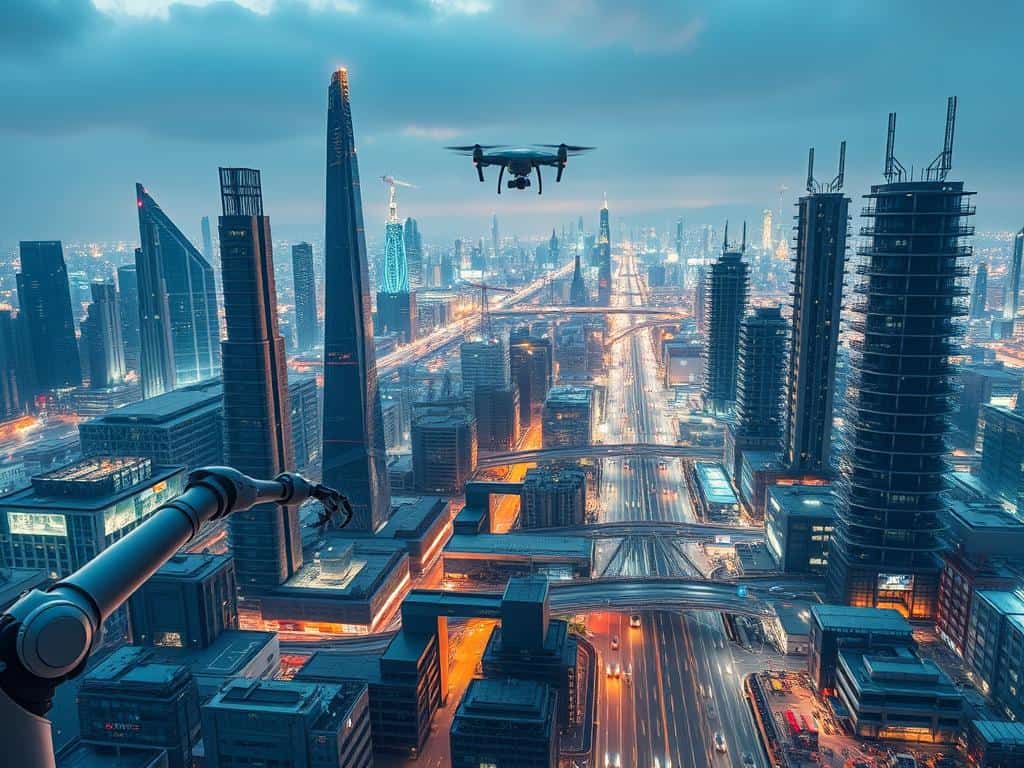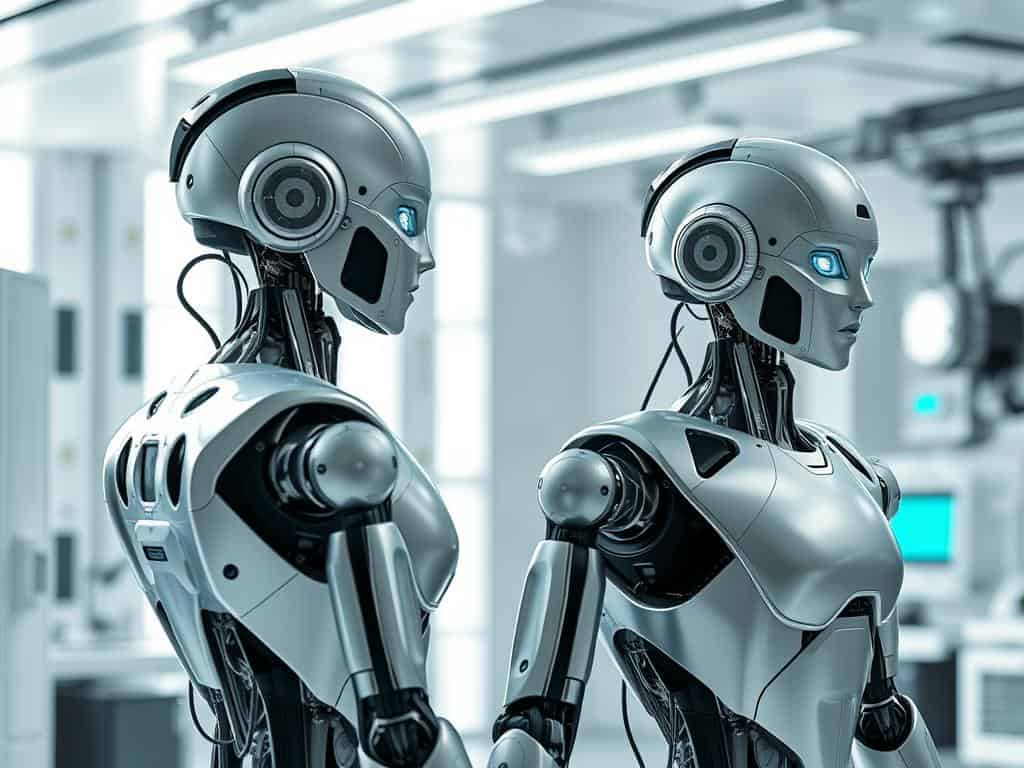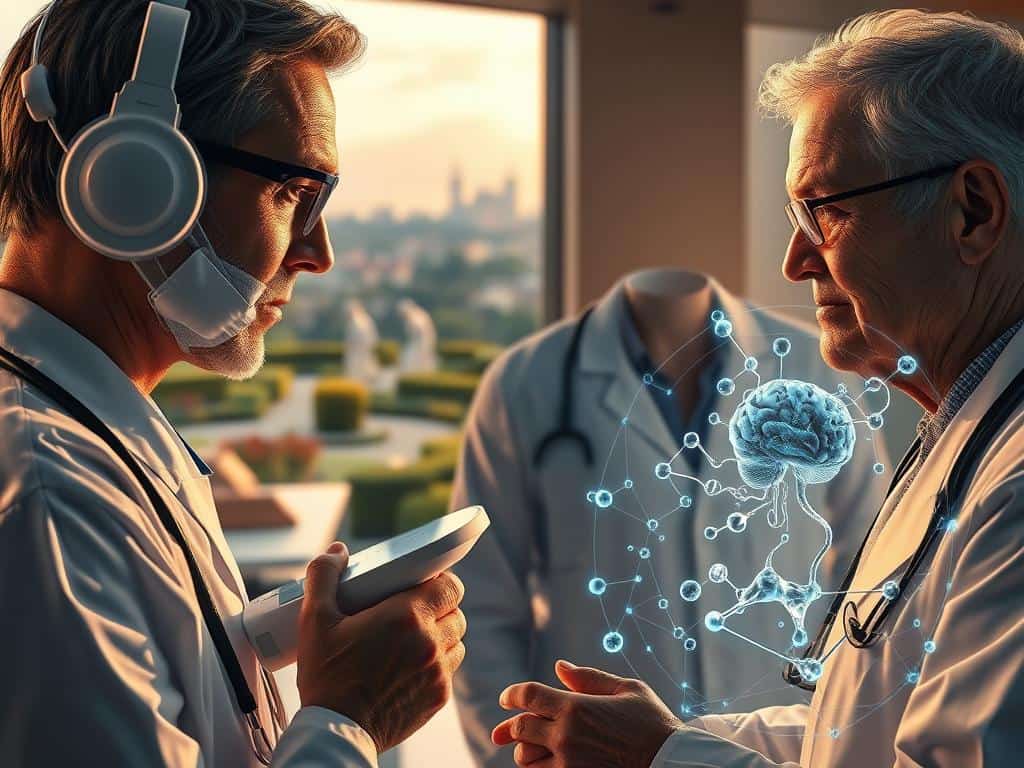Did you know the global Artificial Intelligence (AI) Consulting market hit USD 93 billion in 2022? It’s expected to jump to USD 630 billion by 2028. This huge growth shows how fast companies are turning to AI for success. AI is changing industries like healthcare, finance, and retail.
It helps make operations smoother and improves how we interact with customers. By using advanced machine learning, businesses are changing their ways. This keeps them ahead in a world that’s always changing.
In this article, we’ll look at how AI is changing key industries. We’ll also see how using AI wisely can bring big benefits while solving problems.
Key Takeaways
- AI is a critical component for competitive survival in various industries.
- Healthcare benefits from AI through improved diagnostic accuracy and treatment personalization.
- AI-driven systems enhance operational efficiency in finance and retail.
- The AI Consulting market is rapidly expanding, underscoring its significance.
- Strategic implementation of AI can unlock innovation while addressing challenges.
The Rise of AI in Various Industries
AI is changing many fields, making things more efficient and innovative. It’s transforming healthcare, transportation, and accounting. This leads to new breakthroughs and ways of doing things.
Transforming Healthcare with AI
AI in healthcare is making big strides. It can diagnose diseases like cancer and heart disease quickly. This means doctors can help patients faster.
AI also helps with paperwork, freeing up time for more important tasks. This is thanks to big investments in healthcare tech. It shows how AI can improve and innovate in this field.
New Frontiers in Transportation
AI is changing transportation, with companies like Tesla and Waymo leading the way. They’re working on self-driving cars to make travel safer and greener. AI also helps manage delivery routes, saving fuel and time.
It analyzes traffic and weather to improve supply chains. This reduces carbon emissions. Plus, AI helps keep vehicles running smoothly, making them more reliable.
Revitalizing Tax and Accounting Processes
AI is changing tax and accounting, making them more efficient. It automates tasks like data entry, freeing up time for strategy. AI also analyzes data to help with taxes, making them more accurate.
Blockchain is being used for tax compliance. It offers a secure way to keep records, making financial reports more trustworthy.
Future of AI: Key Trends and Innovations
Artificial intelligence is changing fast, bringing both new chances and challenges. We see big steps forward in many areas, like machine learning and generative AI. Keeping up with these changes helps us use AI to its fullest.
Advancements in Machine Learning
OpenAI has made new models, o1 and o3, that think step by step. This makes them better at things like math and physics. The US military is also using AI, spending $1 billion on a program for small drones.
Google DeepMind’s AlphaFold tool won a Nobel Prize for solving protein folding. This shows how important AI is for science.
Generative AI and Creative Industries
Generative AI is changing creative fields a lot. Searches for AI tools for note-taking have jumped by 8800% in five years. OtterPilot is a great example, used in over 50 million meetings.
Big companies like Google and Amazon are putting a lot of money into generative AI. This shows they see a big need for AI to make things more efficient and creative.
Impact on Workforce Dynamics
AI is changing how we work. It could make up to 70% of tasks easier, letting people do more important things. There’s a lot of interest in using AI to find the best workers.
As AI becomes more common, finding the right balance is key. We need to make sure jobs and AI can both succeed.

Challenges and Ethical Considerations in AI Adoption
Exploring AI in different fields, I face many automation challenges. Technology’s fast growth is exciting but also raises big questions. We must think about job security and ethics to move forward smoothly.
Balancing Automation and Job Security
The rise of AI worries many about their jobs. The World Economic Forum says up to 85 million jobs could go by 2025. But, 97 million new jobs might need special skills. It’s key to help workers get the training they need for these new roles.
Ethical Implications of AI Decision-Making
AI’s ethics are closely linked to how it works. AI can spread biases in its data, leading to unfairness in hiring and lending. It’s clear we need ethical AI to avoid these problems. AI’s ability to show and grow biases is a big risk, so we must have strict ethics in AI’s making and use.
Conclusion
AI is changing the game fast, bringing new ways to work and discover. We’re at a turning point, with big chances for change ahead. But, we also face big challenges that need careful handling and ethical thinking.
Leaders must use new tech wisely and keep ethics in mind. This way, AI can help us grow, not hold us back. I think AI’s success will show in how it helps people and brings fairness, not just in making machines better.
Now, we need to focus on learning, clear AI rules, and talking to the public. By facing these issues, we can avoid harm and create a world full of new ideas and chances. The future of AI is bright, but we must be smart and careful to make it happen.



